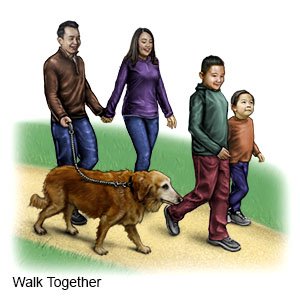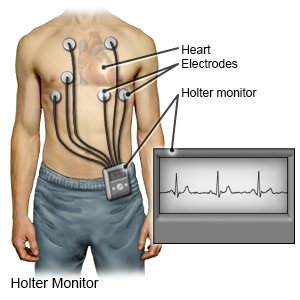Bradycardia
Medically reviewed by Drugs.com. Last updated on Sep 23, 2025.
Bradycardia is a slow heart rate, usually fewer than 60 beats per minute. A slow heart rate is normal for some people, such as athletes, and needs no treatment. Bradycardia may also be caused by health conditions that do need treatment. Your healthcare provider will tell you what heart rate is too low for you.
 |
DISCHARGE INSTRUCTIONS:
Call your local emergency number (911 in the US) or have someone call if:
- You have new or worsening dizziness, shortness of breath, chest pain, or confusion.
Call your doctor or cardiologist if:
- You feel lightheaded or faint.
- Your pulse rate is lower than healthcare providers say it should be, even with treatment.
- You are more tired than usual, even with treatment.
- You have questions or concerns about your condition or care.
Medicines:
- Medicines may be given to increase your heart rate and help your symptoms. You may also need medicine to treat a condition that is causing your symptoms.
- Take your medicine as directed. Contact your healthcare provider if you think your medicine is not helping or if you have side effects. Tell your provider if you are allergic to any medicine. Keep a list of the medicines, vitamins, and herbs you take. Include the amounts, and when and why you take them. Bring the list or the pill bottles to follow-up visits. Carry your medicine list with you in case of an emergency.
Manage or prevent bradycardia:
- Talk to your healthcare provider about all your current medicines. He or she may change a medicine if it is causing your slow heart rate. Do not stop taking any medicine unless directed by your provider.
- Keep a record of your symptoms. Include when you have bradycardia, and what you were doing when it started. Also include anything that made your symptoms better or worse. Bring the record to follow-up visits with your healthcare providers.
- Do not smoke. Nicotine and other chemicals in cigarettes and cigars can cause heart and lung damage. Ask your healthcare provider for information if you currently smoke and need help to quit. E-cigarettes or smokeless tobacco still contain nicotine. Talk to your healthcare provider before you use these products.
- Reach or maintain a healthy weight. Your healthcare provider can tell you what a healthy weight is for you. He or she can help you create a weight loss plan if needed. Weight loss can help strengthen your heartbeat. If you have sleep apnea, weight loss may help you breathe more regularly while you sleep.
- Exercise as directed. Exercise can help strengthen your heart. It can also help you manage your weight and improve your sleep. Your healthcare provider can help you create an exercise plan. He or she may recommend 30 to 40 minutes of exercise most days of the week.

- Eat a variety of healthy foods. Healthy foods include fruits, vegetables, whole-grain breads and cereals, low-fat dairy products, lean meats, fish, and cooked beans. Depending on the cause of your bradycardia, your healthcare provider may recommend a heart healthy diet. This diet is low in sodium (salt) and unhealthy fats. A dietitian or your healthcare provider can help you create a heart healthy diet.

Treatment options
The following list of medications are related to or used in the treatment of this condition.
Heart monitoring at home:
You may need to use a heart monitor at home to provide more information about your condition. This device is also called a Holter monitor, event monitor, or mobile telemetry. Bring your monitor with you to follow-up visits with your healthcare provider or cardiologist. Ask for more information about the Holter monitor.
 |
Follow up with your doctor or cardiologist as directed:
Write down your questions so you remember to ask them during your visits. You may need to see specialists for more treatment. If you have a pacemaker, your cardiologist needs to make sure that it is working as it should.
For more information:
- American Heart Association
7272 Greenville Avenue
Dallas , TX 75231-4596
Phone: 1- 800 - 242-8721
Web Address: http://www.heart.org
© Copyright Merative 2025 Information is for End User's use only and may not be sold, redistributed or otherwise used for commercial purposes.
The above information is an educational aid only. It is not intended as medical advice for individual conditions or treatments. Talk to your doctor, nurse or pharmacist before following any medical regimen to see if it is safe and effective for you.
Learn more about Bradycardia
Treatment options
- Medications for Bradyarrhythmia
- Medications for Sinus Node Dysfunction
- Medications for Tachyarrhythmia
Care guides
Symptoms and treatments
Further information
Always consult your healthcare provider to ensure the information displayed on this page applies to your personal circumstances.
